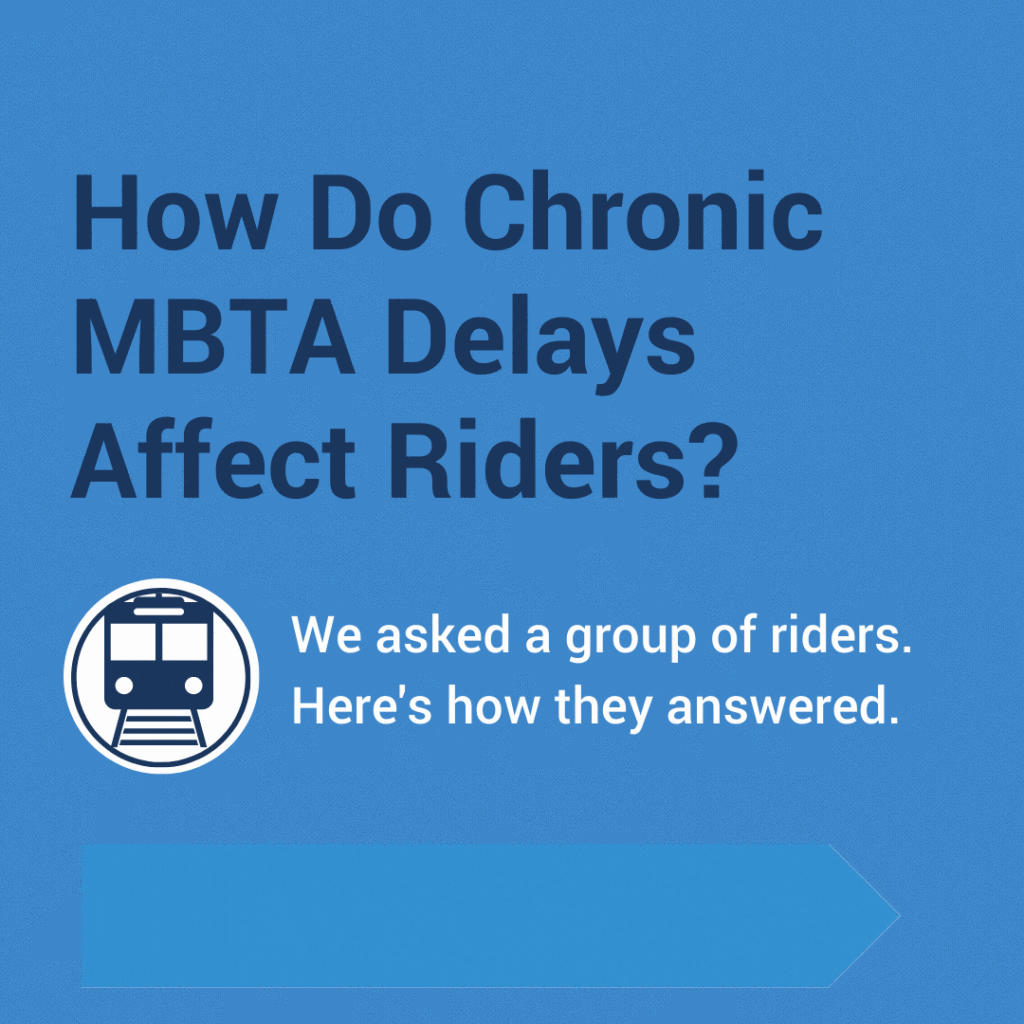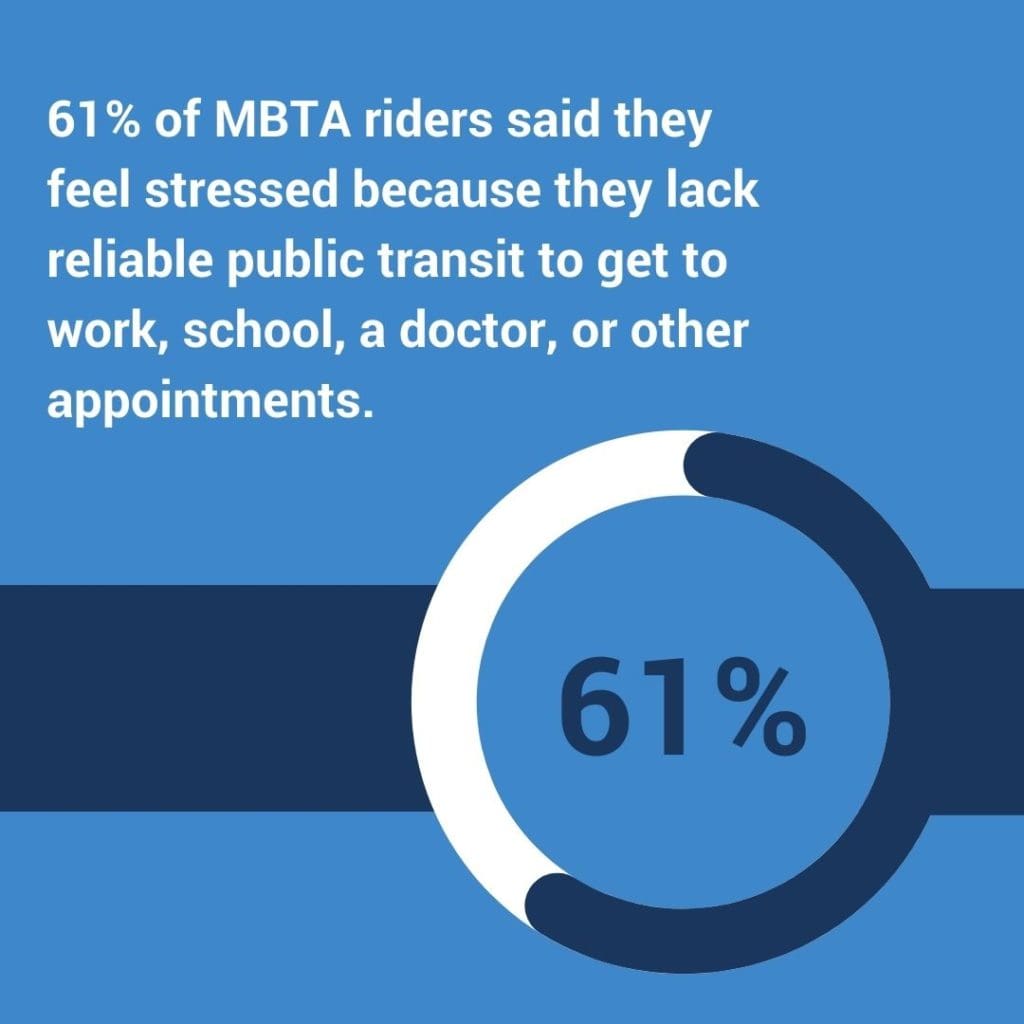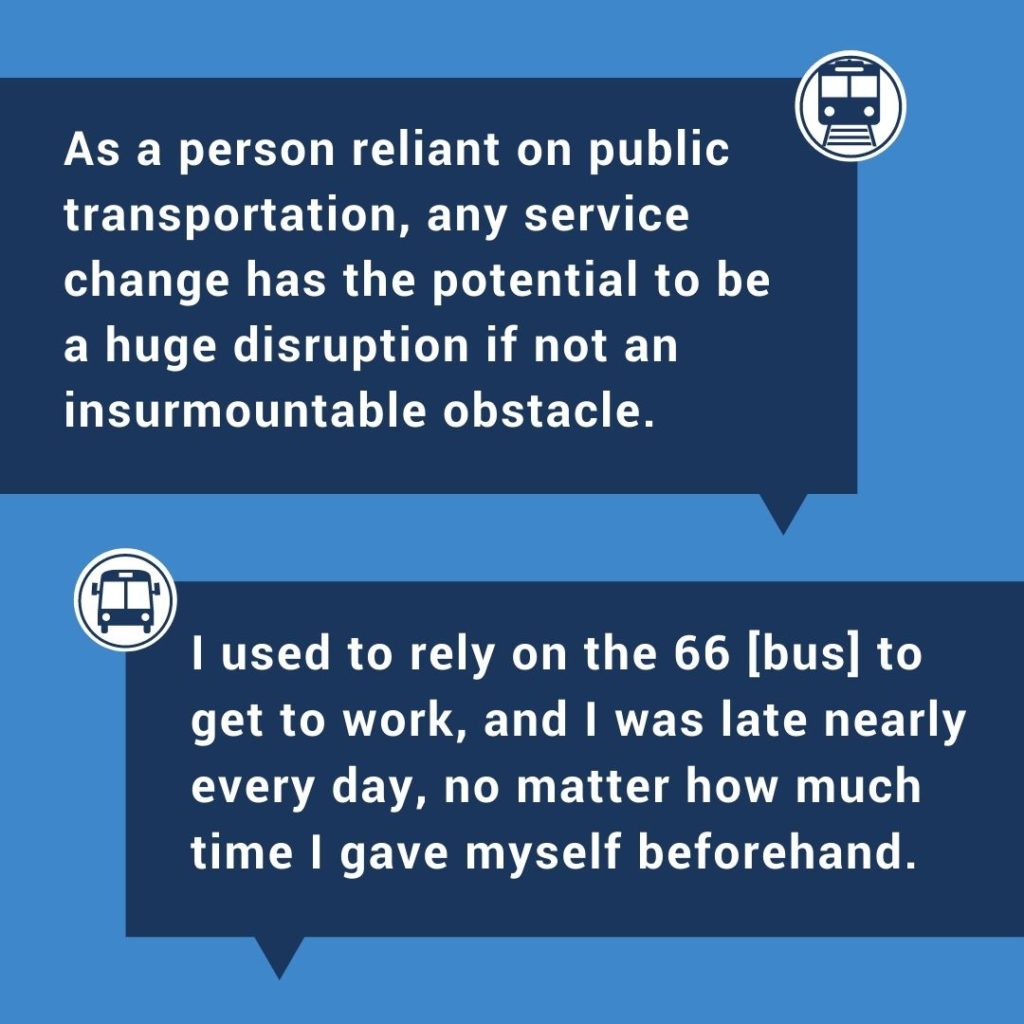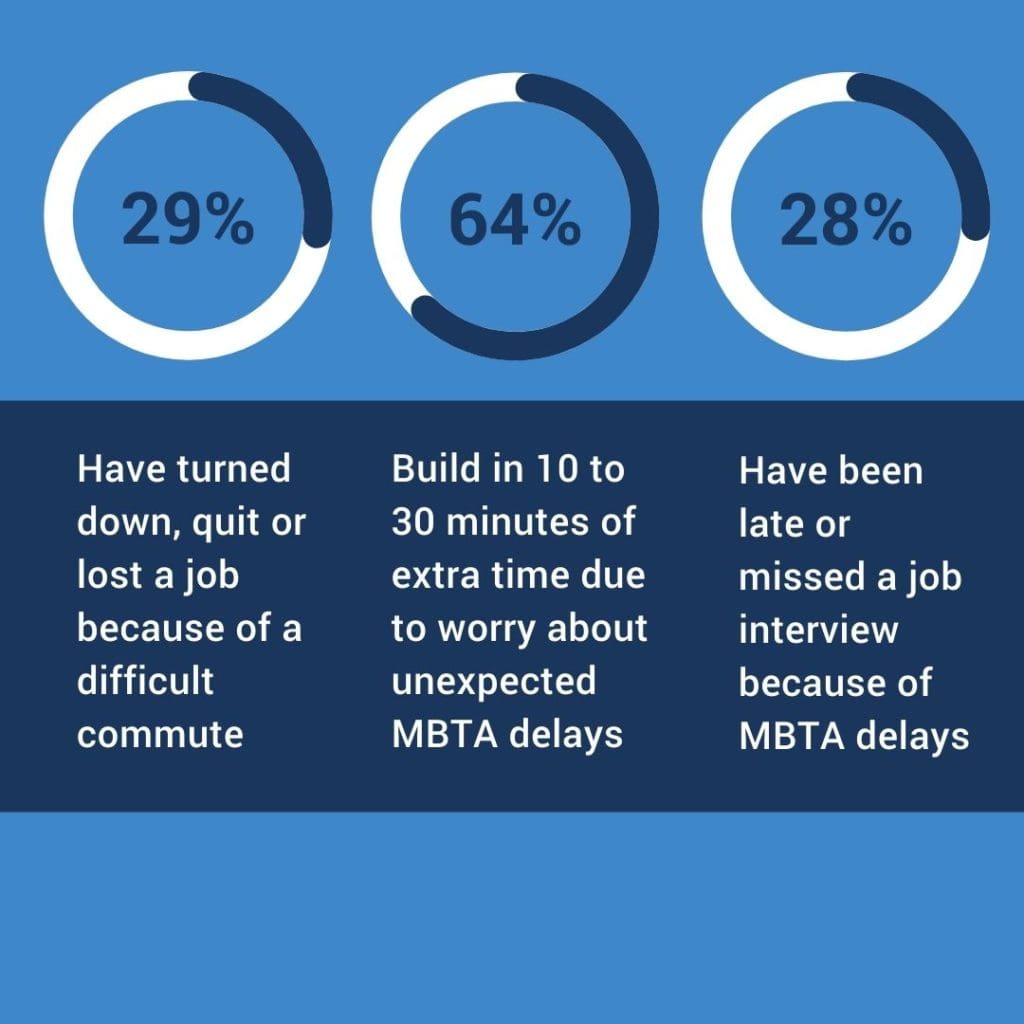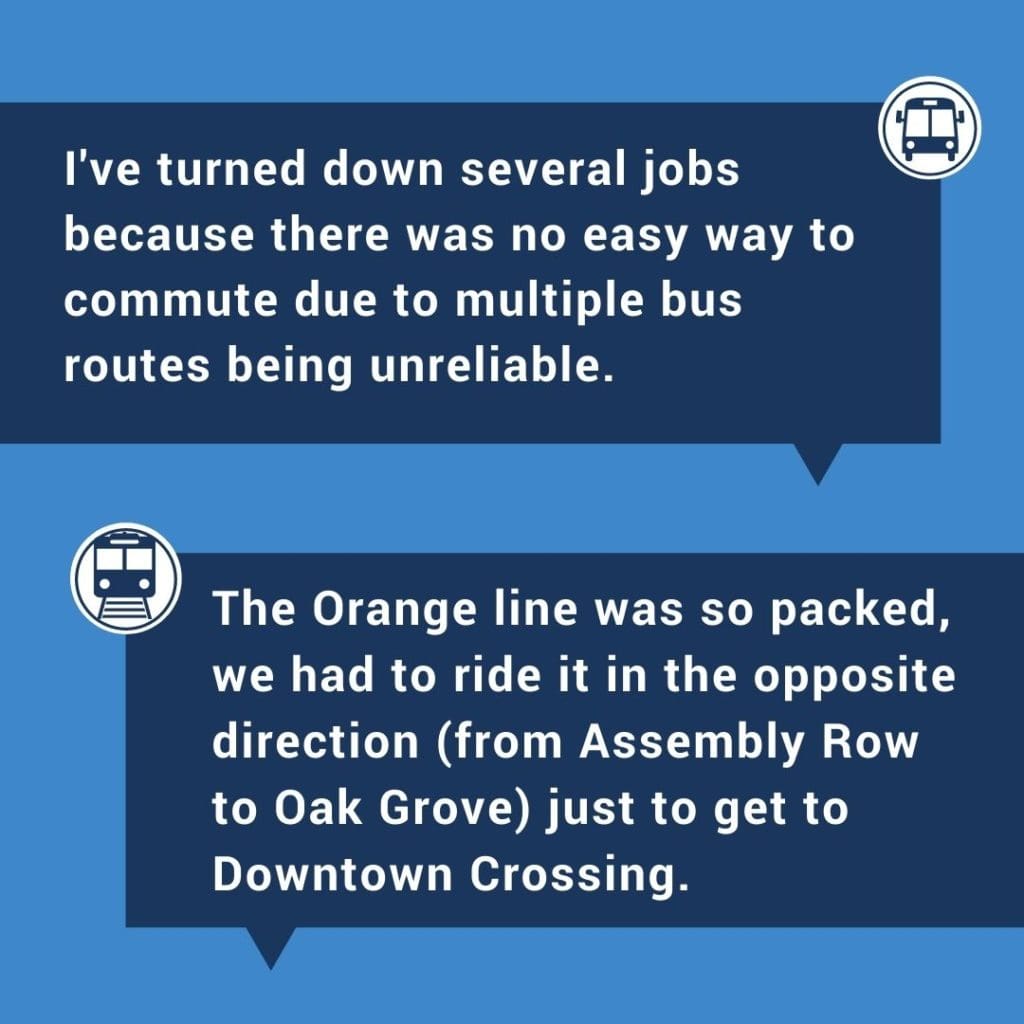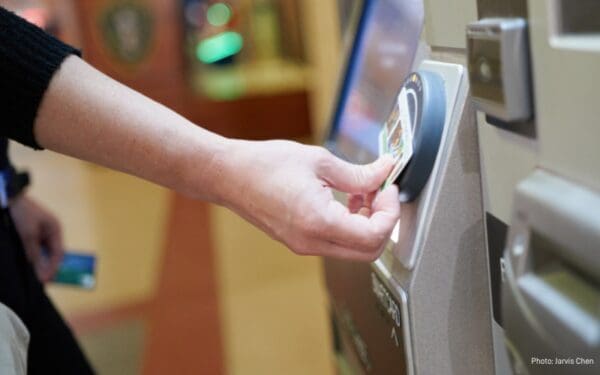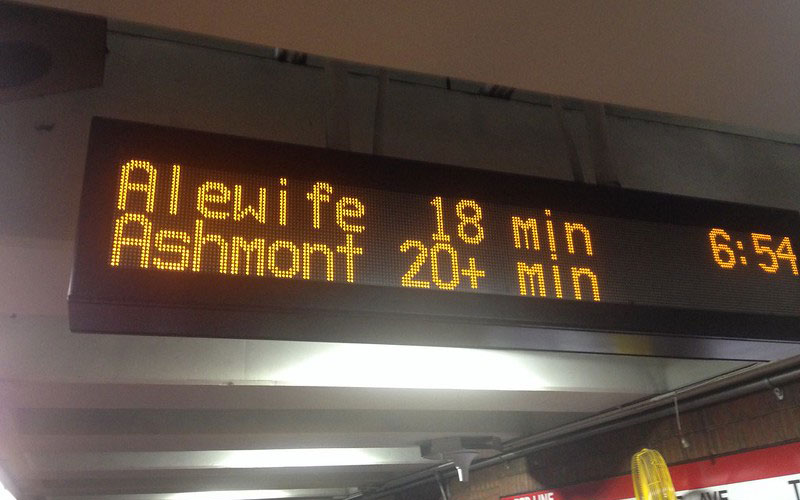
The MBTA is a driver of economic opportunity in the region. But chronic delays undercut access to those opportunities, especially for people of color and low-income communities. Photo: Ethan Marcotte / CC BY-NC-SA 2.0
If you ride the MBTA to work or school regularly, then this scenario will sound frustratingly familiar. You rush to your bus stop or train station, only to find out that it’s delayed – often with little information on what happened or how long you’ll have to wait. When your bus or train does arrive, you get crammed in so tightly that you can barely move. When you finally get to work or school, you’re hopelessly late, even though you left 20 minutes early that morning, just in case.
The worst part? This isn’t the first time this happened this week. No matter how hard you try, MBTA delays make you either chronically late or ridiculously early to your destination.
While this experience is the norm for many commuters, chronic MBTA delays hurt some people more than others. We looked recently at how delays on eight MBTA routes undercut access to jobs and economic opportunities for Greater Boston residents. Our research found that delays – and the reduced access to jobs they cause – take a much heavier toll on communities of color, low-income communities, and limited-English proficient residents than they do on wealthier and whiter communities.
We cannot have a just transportation system in Greater Boston if we don’t address these inequities.
MBTA transit delays undercut access to jobs
Public transit offers a lifeline to jobs, schools, doctors, and more. This is especially true for many low-wage workers, people of color, low-income residents, and those with limited English proficiency. Public transit is often the only transportation option these communities have.
We learned during the pandemic that the people most dependent on public transit are least likely to have the flexibility to work from home. That means they have remained reliant on the MBTA to get to work throughout the pandemic. It also means that they experienced greater impacts when the MBTA cut service during the height of the crisis. And, those impacts continue with the latest service cuts announced this month (December 2021), the need for which the MBTA attributes to labor shortages.
However, the reality is that the MBTA was failing these communities before COVID-19 upended our lives. Our research predates the pandemic’s onset and its containment measures. Even then, for each of the eight routes that we studied, people of color made up a larger share of the neighborhoods most affected by MBTA delays – and the loss of economic opportunities that those delays cause.
Even in neighborhoods with reliable public transit, delays affect residents differently
We looked at three rapid transit routes (the Orange, Red, and Blue lines) and five bus routes (Routes 28, 60, 116, Crosstown 2, and Silver Line 5).
First, we set out to understand how many jobs people living along each route have access to when service operates as scheduled – meaning no unexpected changes or delays. We considered this the baseline, or starting point, for our research. Then we compared that baseline to riders’ reality when service deviates from the planned schedule.
Not surprisingly, the neighborhoods with the greatest baseline access to economic opportunities are closer to the urban core, with its high numbers of subway stations and bus stops. These are neighborhoods like Downtown Crossing, Chinatown, West End, Fenway, and Longwood.
That baseline access decreases as you move farther from the urban core where fewer options for public transit are available – think Saugus, Lynn, Waltham, Milton, West Roxbury.
However, even in neighborhoods with good baseline access, the losses resulting from MBTA delays have a greater effect on people of color and low-income residents. These riders depend more on reliable transit to access critical destinations and opportunities. In other words, when public transit is your only affordable way to commute, you can’t turn to other options like ride-share, cabs, or your own car when chronic delays regularly make you late for work.
What’s more, because the system is so interconnected, many public transit riders rely on bus and subway connections. MBTA delays on one route can have far-reaching impacts throughout the system. For example, 16 buses connect to Forest Hills, the last stop on the Orange Line in Jamaica Plain. A delayed bus can already be an issue for someone trying to get to work; chronic subway delays then compound the problem.
To look at the data in detail, check out our interactive map.
The MBTA must improve service in areas most harmed by chronic delays
Maintaining reliable bus, subway, and commuter rail service throughout the MBTA system is critical to ensuring access to jobs. That’s why MBTA leadership must prioritize service improvements in areas that have:
- poor access to transit and a high share of low-income households;
- high reliance on transit and greater loss of access to economic opportunities due to delays; and
- higher shares of people of color, low-income, and limited English proficiency households.
Specifically, the MBTA should:
- universally increase service reliability with its Bus Network Redesign. Specifically, the MBTA should prioritize more frequent service on bus routes that connect to subway stations identified by our research as experiencing high losses of economic opportunity.
- improve service reliability in areas that are impacted severely by delays, more reliant on transit, and with high shares of people of color, and low-income and limited English proficiency households.
- undertake climate resilience studies and planning to understand how extreme weather will worsen delays. Improving resiliency and minimizing delays caused by extreme weather can help increase economic opportunity for riders.
- prioritize increased service on routes with residents less likely to be able to work remotely. This will help ensure essential workers have reliable transit access as we continue to recover from the COVID-19 pandemic.
A just transportation system must address these inequities
Just transportation systems are affordable, reliable, and safe – and they do not jeopardize one community to benefit others. That’s not what we have in Greater Boston right now.
The MBTA is one of our greatest tools for economic opportunity in our region. That access to those opportunities can be undercut so severely based on one’s zip code is a clear injustice. It’s an injustice that we can and must address. We understand the budget and staffing pressures that the pandemic has placed on the MBTA. But the greater pressure falls on communities of color and low-income residents, who have already been hit hardest by COVID-19 through health risks and financial stress.
Naturally, we want to see every MBTA route run on time every day. But until that happens, the MBTA must be a partner in creating a just transportation system. It must prioritize service for residents and workers already hardest hit by its chronic delays. Anything else simply ignores the problem and perpetuates injustice.
Para leer el informe ejecutivo en español, haga clic aquí.
Para ler a sumário executivo em português, clique aqui.
要要阅读中文报告的执行摘要,请单击此处。

